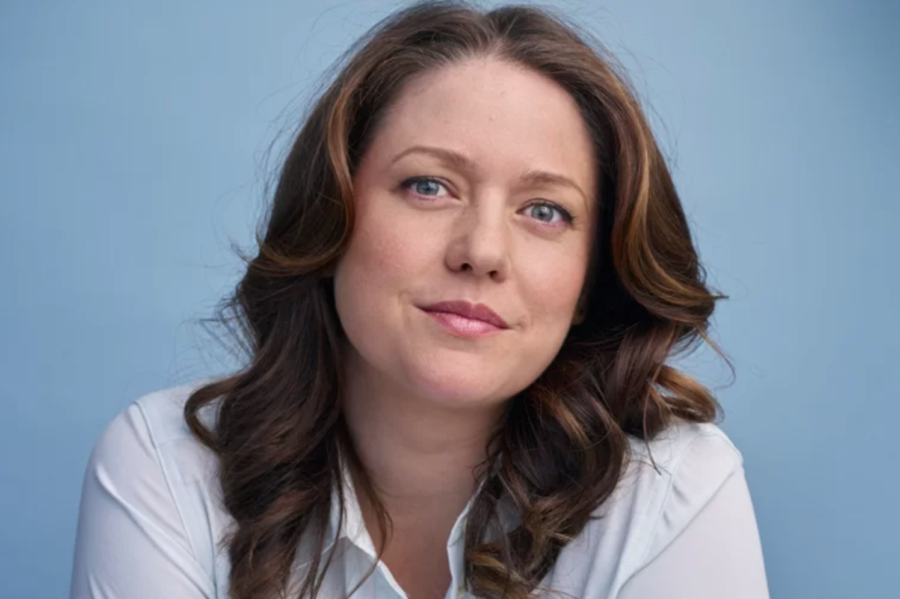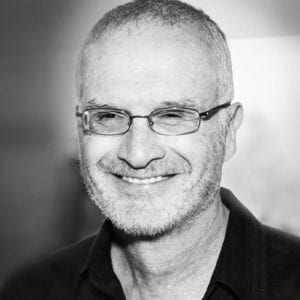I spoke with Liesel Pritzker Simmons of Blue Haven Initiative, where she oversees an impact investing portfolio structured to generate financial returns and address social and environmental challenges.
The portfolio spans asset classes, from traditional equities and private equity to philanthropic programs. A longtime advocate for informed, conscientious investing, Liesel co-founded Blue Haven, a single-family office, with her husband, Ian Simmons. Their family office is considered to be one of the first to have been created with impact investing as its mission. She works closely with numerous organizations that support and advance the field of impact investing.
CLIFF: In your July 2014 article for GreenMoney you talked about your experiences as a millennial investor and called on the financial services industry to stop talking about trade-offs, broaden their definition of risk, and understand that young people want to create real value. How have you seen progress on these fronts in the past six and a half years?
LIESEL: I think there has been a big shift, at least in the rhetoric. There is no doubt that impact investing is here to stay. Financial performance of ESG has been pretty solid, both in market corrections and bull runs, so the knee-jerk “BUT THERE ARE TRADE-OFFS!” position becomes more and more hollow. In terms of risk, every major financial institution has at least published a white paper on climate risk, which is quite something. And the #MeToo movement and Racial Justice conversations have mobilized employees and customers of major companies to clamp down on toxic and discriminatory cultures. These are all positive developments, I think. Are things happening fast enough? Of course not.
I think my hottest take in my 2014 piece was that this generation of investors is not convinced by Milton Friedman’s shareholder primacy doctrine. And I’m even more sure of that now. Trickle-down economics is not working. Time for something new: more accountability.
CLIFF: You and your husband, Ian Simmons, are co-founders and principals of Blue Haven Initiative. You’re aligned in many ways, but how have you structured your family office and portfolio to reflect your individual interests?
LIESEL: Ian and I were both interested in impact investing and aligned when it came to structuring a portfolio that was dedicated to it. But when forming our family office, we wanted to make sure to reflect our individual interests and impact-focused activities beyond investing. For example, I’m extremely interested in supporting startups in sub-Saharan Africa. Our direct investment portfolio focuses on early-stage energy, fintech, logistics and human capital ventures there. We’re really excited to help build the talent pipeline in Kenya and East Africa. In early-stage companies we saw how recruiting and empowering talent is one of the most import things to build to scale – and really see it as one of the biggest opportunities to accelerate impact.
In addition to impact investing, Ian has also focused on civics, especially policy and accelerating civic engagement policy solutions. I think there’s an argument to be made that our most important work on climate has been in engaging more Millennial and Gen Z voters to show up and vote for a clean energy future these last two elections. That kind of structural change, along with good policy and a healthy democracy — something that we’ve seen we can’t take for granted — are essential for markets over the long-term. And the way we’ve structured our family office incorporates all of that.
CLIFF: How has your approach to impact investing evolved, as the industry has evolved? How have your expectations and even definition of ‘impact’ evolved?
LIESEL: Early on we really focused on “knowing what we own” and making sure our investments were aligned with our values. But increasingly we’ve focused on how policy, philanthropy and investing are interconnected.
2020 helped show how much we take for granted in terms of how important norms and democratic foundations are to our society. I think more and more people are coming around to the idea that long-term investing isn’t just about investing in assets that have a long duration or long-view manager, but also doing things that are healthy for investors over the long term and for future generations.
That encourages us to keep pushing things. Whether it’s practices within Blue Haven or evaluating who is managing our money, we’ve been focused on upgrading our practices, insisting on higher standards for managers and evaluating hiring policies, particularly around issues of racial and gender equity. It’s not so much about saying, “Look at us” — we still have a lot to do and learn — but we want to show that it’s possible to adopt higher standards.
CLIFF: Why is it important for business leaders to pay attention to the impact investing movement?
LIESEL: The single biggest reason to pay attention to the ideas around impact investing is that it is absolutely essential for recruiting talent of any caliber to your organization. Kids these days want it all — they want to work for a thoughtful organization that has a purpose and treats stakeholders (including the planet) with respect. And it needs to be authentic. People can see through the pithy platitudes and actually want to see if there’s any follow through.
CLIFF: What advice do you have for other millennials who are just starting their impact investing journey? And do you have any advice to those who want to address climate change and environmental changes on how to take effective action?
LIESEL: Ultimately, the impact investing journey starts with being curious about what’s going on with money around you. In my early investing days I learned that a vehicle manufacturer company I was investing in was supplying the Sudanese government during genocide. I was surprised — and disappointed — but I sold the stock.
No matter how much you have in a bank account, you can learn more about the business practices of what, say, your bank is doing — who they’re lending to and so forth. Check in on what your college endowment is investing in. Wherever you are, you can have an impact, and you can engage others to do the same.
I like to say perfect is the enemy of the good, and that definitely applies here. It’s not about getting things exactly right the first time around. Just get started. And it’s okay to start small!
CLIFF: Coming full circle from 2014: What advice do you have for the financial services industry in 2021 and beyond?
LIESEL: If I were in the leadership of a financial services firms — or any large firm, for that matter, I’d develop a hypocrisy index. How much does my firm say that is in direct opposition to what it does, meaning how it allocates capital? Easy examples are around climate change. Take Larry Fink and BlackRock. On one hand they talk about stakeholder capitalism, but at the same time they still vote at a relatively low percentage on climate resolutions as a stockholder. But things get much more interesting when you look at lobbying efforts and government relations — what’s going on over there? If you’re supporting candidates or initiatives who are instituting policies that are actively undermining your bold statements, you should not get credit for your bold statements.
So, get proactive about issues like climate and racial justice and corruption, and figure out ways to integrate them into your brand and business model. If you do it quickly enough, there’s a competitive advantage. It’s never too early to show leadership.
Biography: Liesel Pritzker Simmons is Co-Founder and Principal of Blue Haven Initiative, where she oversees an impact investing portfolio structured to generate financial returns and address social and environmental challenges. The portfolio spans asset classes, from traditional equities and private equity to philanthropic programs.
A longtime advocate for informed, conscientious investing, Liesel co-founded Blue Haven, a single-family office, with her husband, Ian Simmons. Their family office is considered to be one of the first to have been created with impact investing as its mission.
Liesel works closely with organizations that support and advance the field of impact investing. She was a co-founder of The ImPact, a network of families committed to the conscientious stewardship of wealth. She also serves on the board of Toniic, which provides tools for investors to evaluate impact investments, and on the board and the investment committee of ImpactAssets.




































